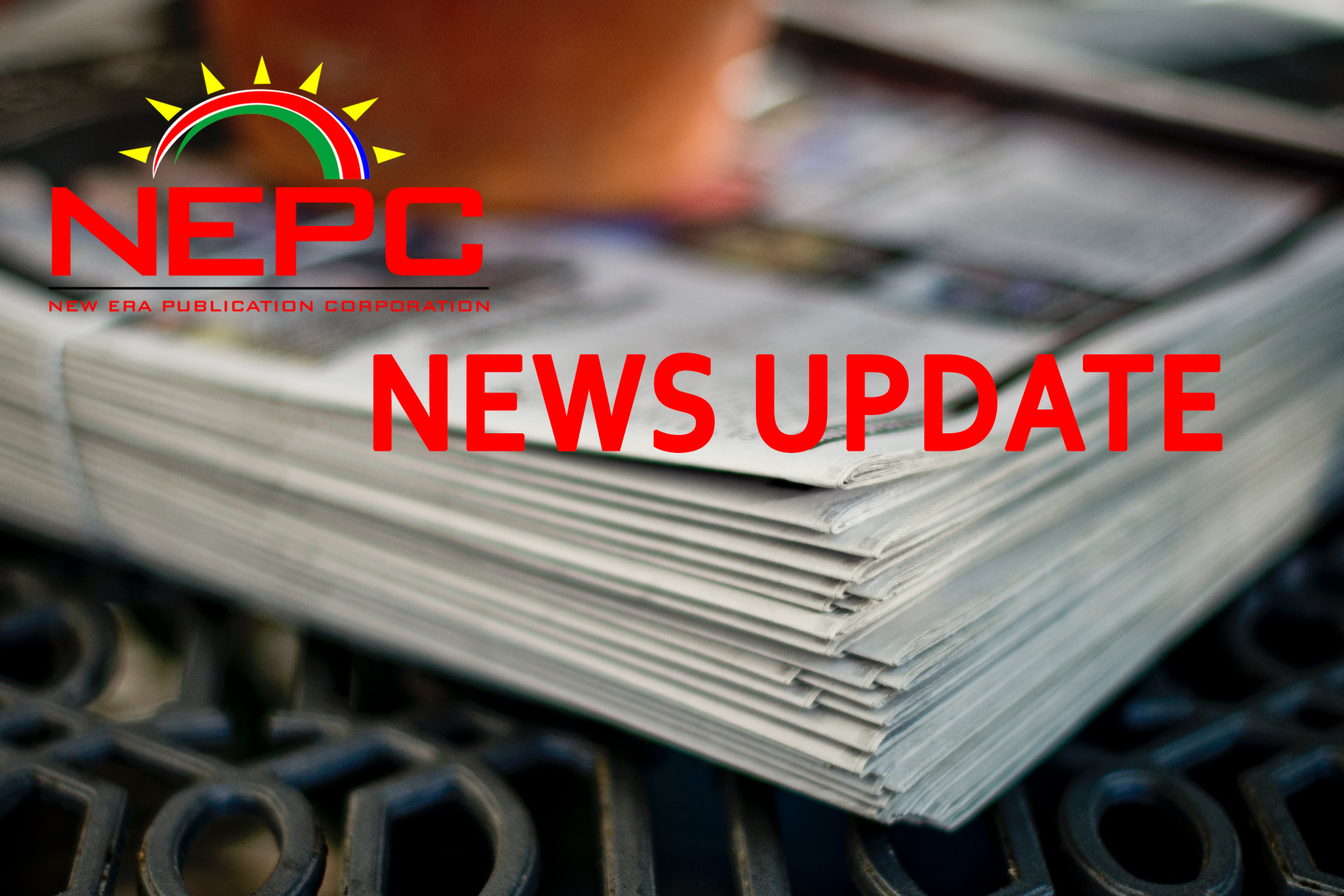Edward Mumbuu
Zambezi governor Laurence Sampofu yesterday requested President Hage Geingob to declare a state of emergency over the impending drought situation that has gripped the northern part of the country. Sampofu registered his submission on Monday when the 14 governors met Geingob at State House.
It was initially a closed-door meeting between the president, presidential affairs minister Christin //Hoebes, her team of experts and governors.
However, towards the tail-end of the session, the media was allowed to enter. It was their first meeting with the president since they were transferred from the urban ministry to the Presidency to, among others, eliminate confusion and bureaucratic bottlenecks that existed.
For instance, while the governors got their budget from the ministry, they required the president’s approval whenever they travelled. After a briefing by Geingob, governors were given the platform to address their appointing authority. Their budget is now also channelled through the Presidency.
Sampofu seized the moment.
“Just to inform you that we have a food security crisis. So, can we look at maybe declaring drought in the country,” Sampofu pleaded with Geingob. However, Geingob informed the governor that he was delivering the message to the wrong person.
According to Geingob, Sampofu should go through Prime Minister Saara Kuugongelwa-Amadhila, the head of government business. He took the governors down memory lane to the day he was Prime Minister. “The problem is that when I was a Prime Minister, [President] Sam Nujoma never used to hear this. There is a Prime Minister and that’s the Prime Minister’s job… administration. We even had to amend the constitution,” Geingob said, pointing to a constitutional amendment that gave the prime minister full powers to administer government affairs. Geingob also hinted to governors to approach line ministers before calling for the president’s intervention. Geingob added that even if a state of emergency were to be declared, such a decision should be well calculated and informed by facts. “We have to be careful about that. It must go through the procedures, but [not] just [to] hasten the procedures. If we give now the emergency, it suspends the checkpoints and so forth,” Geingob said.
While a state of emergency is declared with bona fide intentions, they also create fertile grounds for corruption, Geingob added. “Emergency suspends certain rules [and] requirements… Knowing our people who think everything is corruption, [it] should be avoided,” Geingob said.
According to the former Prime Minister, corrupt practices in public procurement come in the form of overcharging prices of goods and services.
“We need to be careful about it [and] not give one person power to decide about that. Opening up more [means], they [can only] steal in darkness. They don’t steal in daylight… By opening it up to many people, it limits the corruption aspects,” Geingob said. Last week, Cabinet directed the Office of the Prime Minister to extend the drought relief programme by the tune of N$121 million to Kunene, as well as parts of Erongo and Omusati.
The last time a state of emergency was declared, auditor general Junias Kandjeke pointed to potential maleficence in the State’s procurement of goods and services. Kandjeke’s Covid-19 report revealed that government contracts were awarded at whim without following the Procurement Act under the pretext of ‘state of emergency’.
However, Kandjeke said, an emergency situation cannot be used as an excuse to flout the laws of the republic. “Compliance with the Procurement Act was unsatisfactory, based on our findings. In a disaster situation, government offices, ministries and agencies needed to act swiftly; however, the emergency. [The] appointment of service providers led to the contravention of the Procurement Act,” said Kandjeke. The report was released last year.
What was apparent in the report is that the Office of the Prime Minister (OPM) and the health ministry opted to follow a direct procurement method to source services from suppliers to the value of N$1.4 million and N$4.6 million, respectively. “There was not sufficient evidence to prove that the chosen suppliers had the exclusive right to supply the services procured or were the only suitable alternative available,” Kandjeke said.
Ears and eyes
On the day, Geingob also reminded the governors that they are de facto an extension of his office in the regions. “You are my eyes and ears on the ground,” Geingob proverbially stated.
He also took issue with Kavango East governor Bonifatius Wakudumo, who petitioned the government last year. “Wakudumo, you cannot petition yourself. You are the government,” he said.
President Geingob also explained why they amended the constitution to directly appoint governors. Part of the reason, he said, was to avoid the Bantustan system that divided Namibia into different homelands, which means a strong central government presence was required in each region.
He explained this was to avoid the possibility of the regions – not under the ruling party – breaking away and not adhering to the central government’s directives. He then moved to local authorities, where the ruling party, Swapo, has lost its grip on key urban centres, including Windhoek, Walvis Bay and Swakopmund. Geingob said Swapo has the most competent and qualified members for local government positions. But for as long as these individuals are overlooked, the party will continue struggling in those elections. “We must select the right people to stop losing elections,” Geingob said.
- emumbuu@nepc.com.na


